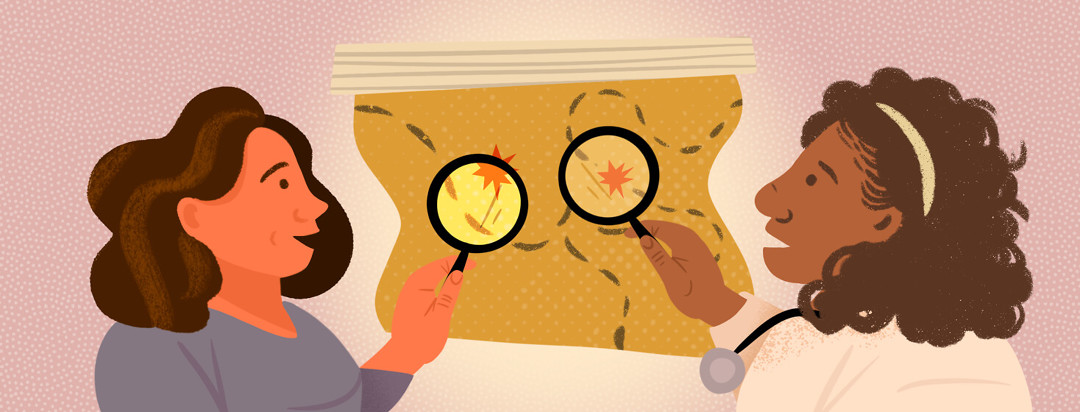Finding Answers To Chronic Pain: CF And Rheumatoid Arthritis
In the "Searching for Answers to Chronic Pain," I detailed the frustrating journey of living with chronic pain since late puberty. After the pain started severely impacting my quality of life, my CF care team encouraged me to get a second opinion from a more knowledgeable and empathetic rheumatologist than the one I saw in the past. I didn’t know it then, but this doctor was about to help me along the way to finding answers to chronic pain.
Meeting my new rheumatologist
Meeting my new rheumatologist, I was a little nervous. The last rheumatologist I saw said he couldn’t help because my case wasn’t straightforward. So I entered the appointment assuming this physician would say the same: my symptoms were from worsening lung function and respiratory infections. Chronic pain is often just the ugly side of getting sicker with CF--or at least that’s what I believed.
But when she asked me to lay on the table and examined my achy joints, we laughed at every crack and pop. It sounded like a bag of popcorn taking a spin in the microwave. Moreover, she immediately pointed out the swelling in my wrists and ankles that I had missed. I think that moment formed a sense of trust between us. I knew she was more perceptive and attentive than I expected her to be.
Searching together for answers
As she examined me, she asked when my pain started and how it developed over the years. Listening patiently, I told her my story and how my pain was a factor in my life living with CF. I felt comfortable telling her truthfully how much the pain controlled my day and quality of life as a young mom. I commented on how I had no pain in my pregnancy which I always thought was weird. She remarked a lot of her patients with rheumatoid arthritis go into remission during pregnancy. Interesting…
In response to her simple question of how I was managing, I explained what helped ease the pain and what medications I have taken to give me relief. She was impressed I was able to remember the correct dosage and timing. I had many, many years of practice managing A LOT of medication. It’s simple to remember the names of the ones that make you feel more like yourself. By the look on her face, I knew she believed without a doubt I was living with unmanaged pain.
“Do you have any stiffness in the mornings?” she asked as she moved my joints in a circular motion. “Yes,” I said, “my hands started getting stiff in the morning within the last couple months.” After the exam, she looked at me and said, “I think we should run the blood work again, and I have a suspicion we will find something. My goal is to get you feeling better.”
Diagnosis: rheumatoid arthritis
I was a little taken aback when I got the message that my lab results came back positive for rheumatoid arthritis. Rheumatoid arthritis (RA) is an autoimmune disorder where the immune system mistakenly attacks healthy joint and bone tissues and causes swelling, redness, and pain. Growing research shows the combination of genetics and chronic and serious infections, like the frequent cystic fibrosis exacerbations I experienced, can trigger the immune system to go into hyperdrive, causing rheumatoid arthritis.1
In my case, the causes, symptoms, and treatments all overlapped and interconnected which was why it was hard to distinguish one disease from the other. Furthermore, the symptoms of a rheumatoid arthritis flare and cystic fibrosis exacerbation can be quite similar:
- Low grade fever
- Fatigue
- Increased joint pain
- Overall achiness
- Weight loss
In retrospect, I see how my decline last year might have been a case of a CF exacerbation sprinkled with RA flare after flare--there’s no way to tell in reality. Although a new chronic diagnosis isn’t the most welcomed site, it meant after many years of mysterious pain, I finally had a name and treatment course to begin the journey to feeling better.
Do you or your loved one with cystic fibrosis also have rheumatoid arthritis? Share your experience in the comments below.

Join the conversation